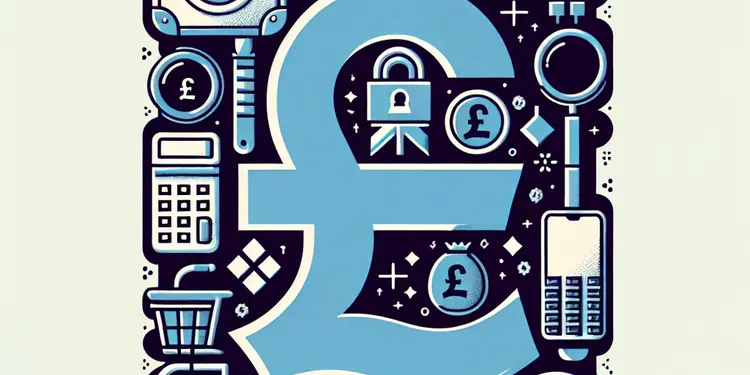
Find Help
More Items From Ergsy search
-
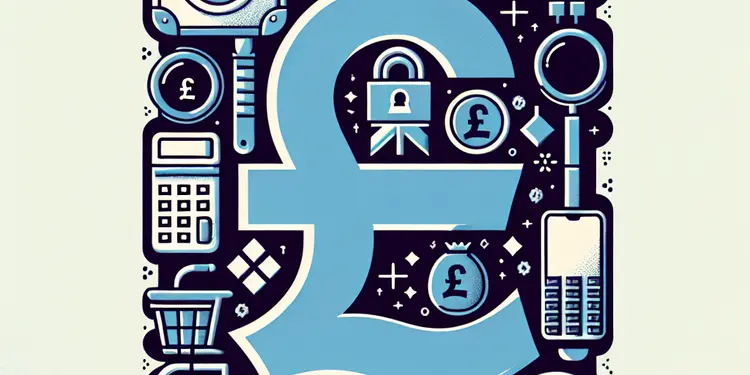
What penalties are imposed on retailers who violate the age restrictions?
Relevance: 100%
-

What age restrictions apply to purchasing e-cigarettes under the new rules?
Relevance: 51%
-

What is the penalty for violating a hosepipe ban from Thames Water?
Relevance: 45%
-
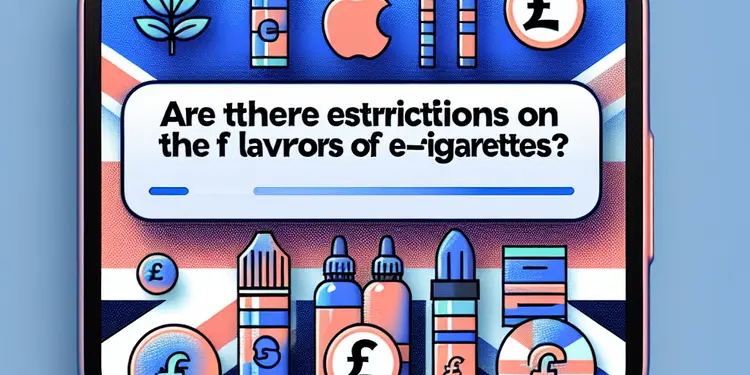
Are there restrictions on the flavors of e-cigarettes?
Relevance: 33%
-
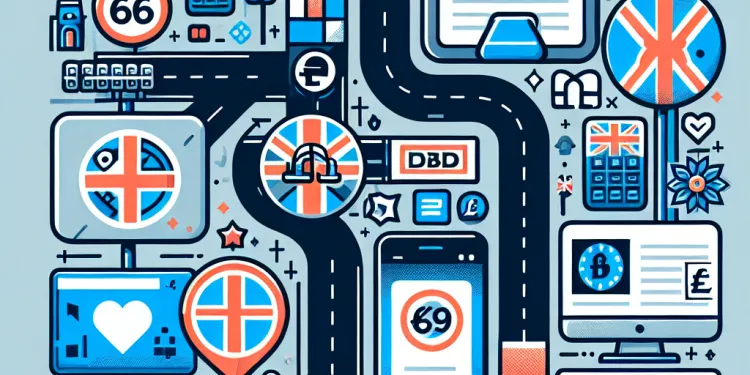
Are there any age restrictions for acquiring a digital driving license?
Relevance: 31%
-
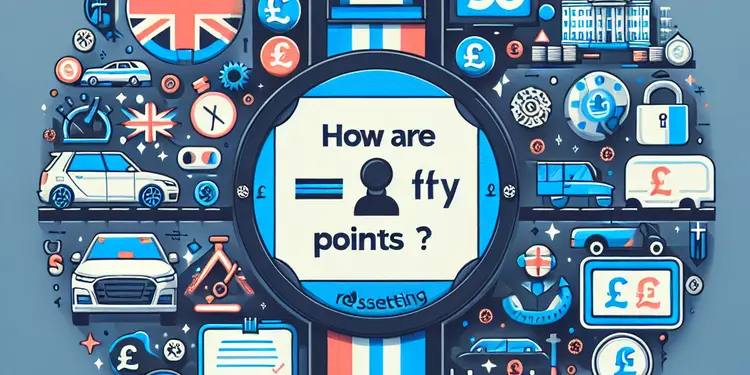
How are penalty points reset?
Relevance: 28%
-

Are there penalties for water companies besides issuing refunds?
Relevance: 28%
-
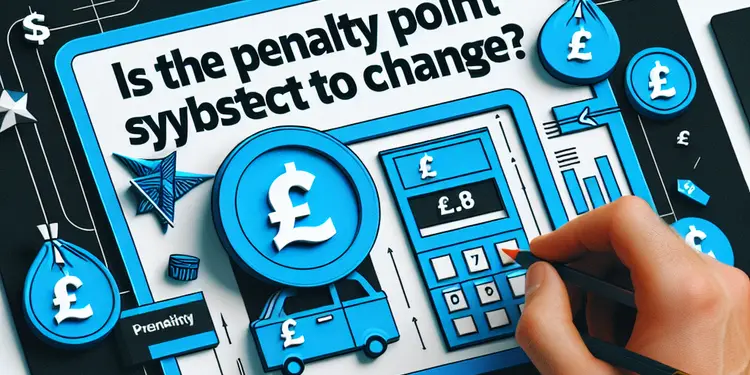
Is the penalty point system subject to change?
Relevance: 27%
-

Are age restrictions currently in place for social media platforms in the UK?
Relevance: 25%
-
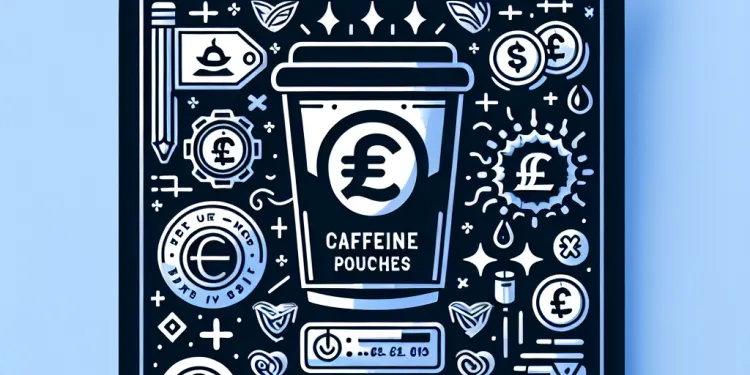
Are there any legal restrictions on caffeine pouches?
Relevance: 25%
-
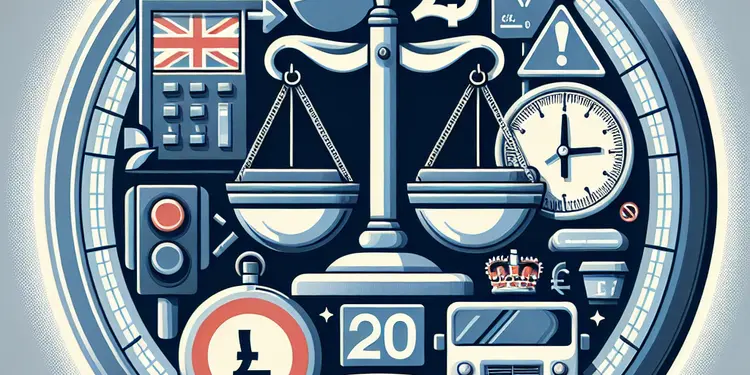
Are there any exceptions to who can accrue penalty points?
Relevance: 25%
-
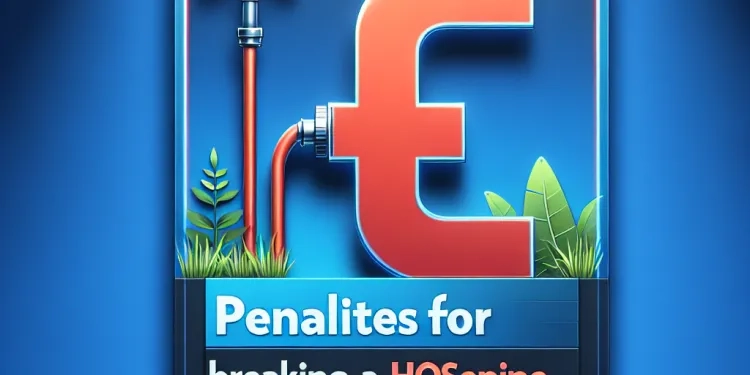
What are the penalties for breaking a hosepipe ban?
Relevance: 25%
-
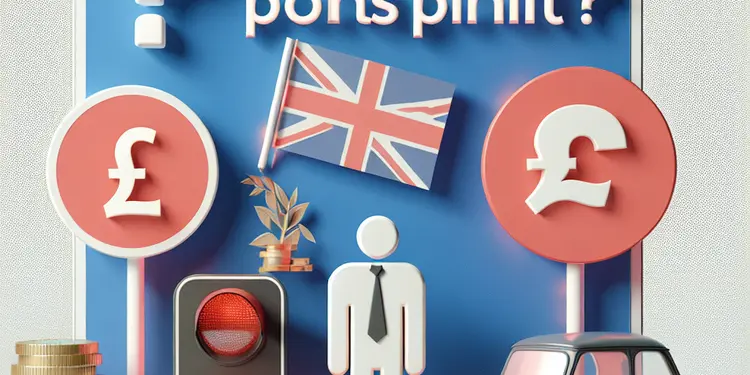
Can penalty points be appealed?
Relevance: 25%
-

How can I avoid penalty points?
Relevance: 24%
-

Does the penalty point system apply to all businesses?
Relevance: 23%
-

Is there a maximum number of penalty points one can receive?
Relevance: 23%
-
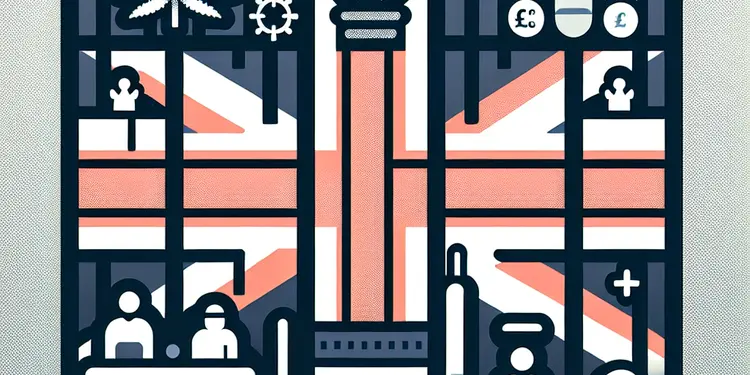
What penalties are common for drug offences?
Relevance: 23%
-

Is online sale of e-cigarettes still allowed?
Relevance: 22%
-
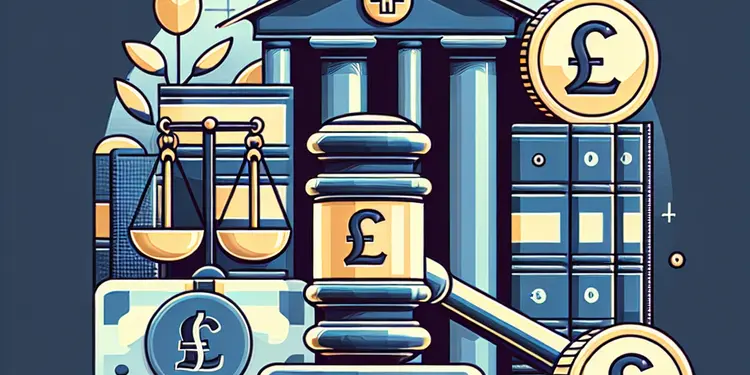
What is the penalty for supplying ketamine in the UK?
Relevance: 21%
-

What is the financial penalty if I exceed the threshold?
Relevance: 21%
-

How does the penalty points system work?
Relevance: 20%
-

Can water companies enter my property to enforce a hosepipe ban?
Relevance: 20%
-

How effective has the age verification process been?
Relevance: 20%
-

What is the penalty for possessing ketamine in the UK?
Relevance: 20%
-

Are there penalties for not maintaining water infrastructure?
Relevance: 20%
-

How can I check my penalty points status?
Relevance: 20%
-

What happens when I reach the penalty point threshold?
Relevance: 20%
-

Are there any restrictions on where e-cigarettes can be used?
Relevance: 20%
-
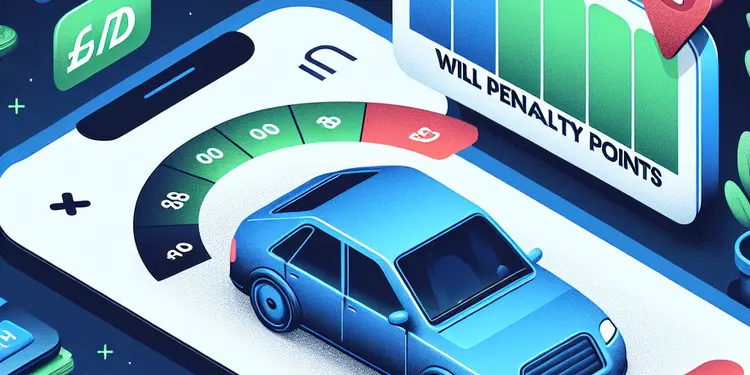
Will penalty points affect my credit score?
Relevance: 20%
-

Are there any penalties for sending unsolicited messages?
Relevance: 19%
-
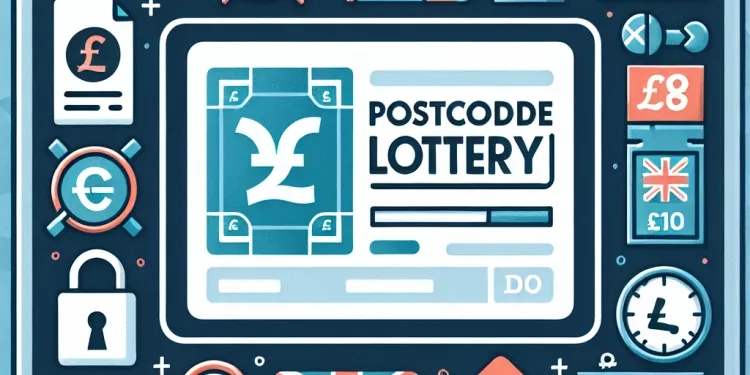
Is there a minimum age requirement to play the Postcode Lottery?
Relevance: 19%
-

Is there a penalty for late payment of Stamp Duty in the UK?
Relevance: 19%
-

What is HMRC new penalty point system?
Relevance: 19%
-

What is the HMRC's new penalty point system?
Relevance: 19%
-
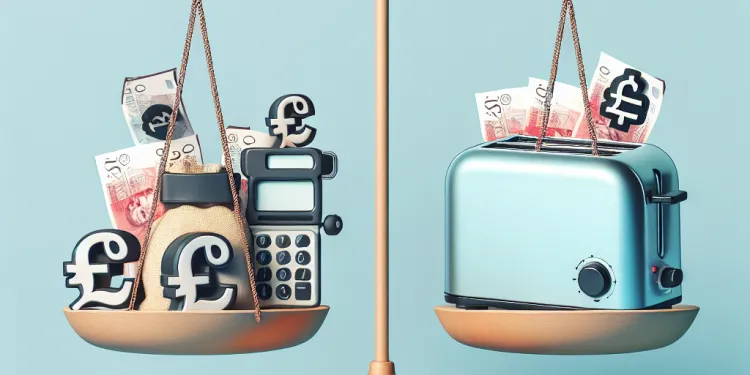
Are there any penalties for not complying with a product recall?
Relevance: 19%
-

Can I appeal against a penalty from HMRC?
Relevance: 19%
-

How are hosepipe ban restrictions communicated to the public?
Relevance: 19%
-

Are there any dietary restrictions while taking Abiraterone?
Relevance: 19%
-

Are penalty points cumulative across different types of taxes?
Relevance: 18%
-

What should I do if I disagree with a penalty point assessment?
Relevance: 18%
Introduction
In the UK, age restrictions are enforced on certain products, including alcohol, tobacco, and knives, to prevent minors from accessing them. Retailers who fail to comply with these rules are subject to various penalties. Understanding these penalties is essential for businesses to avoid legal repercussions and contribute to public safety.
Penalties for Violating Age Restrictions
The penalties imposed on retailers who violate age restrictions can be severe, reflecting the importance of these laws in protecting minors. The specific penalties depend on the product involved and the severity of the violation. Common penalties include fines, license suspension or revocation, and in some cases, imprisonment.
Fines
Fines are the most common penalty for retailers who sell age-restricted products to minors. The amount of the fine can vary based on the nature of the offense. For instance, selling alcohol to a person under 18 can result in a fine of up to £5,000. Retailers selling tobacco products to minors may also face significant fines, emphasizing the seriousness of these offenses.
License Suspension or Revocation
Retailers who persistently flout age restriction laws, particularly with alcohol sales, risk having their license suspended or revoked. This action severely impacts a business's ability to operate, especially if alcohol sales constitute a significant portion of the enterprise's revenue. Local councils take license compliance seriously and conduct regular checks to ensure adherence to licensing conditions.
Criminal Prosecution and Imprisonment
In more severe cases, especially if a retailer consistently violates age restrictions or does so with intent, criminal prosecution can occur. Convicted individuals may face imprisonment. While imprisonment is less common, it serves as a powerful deterrent, underscoring the gravity with which these offenses are viewed by the law.
Additional Measures
Beyond direct penalties, various additional measures may be enforced. Retailers might be required to implement more rigorous age verification systems or undergo mandatory training. These measures aim to prevent repeat offenses by ensuring retailers understand and adhere to age restriction laws.
Conclusion
The UK enforces strict penalties on retailers who violate age restrictions, highlighting the importance of protecting young consumers. Retailers must remain vigilant and trained in proper verification techniques to avoid severe penalties like fines, license loss, or even imprisonment. Staying informed about current legislation and implementing robust ID verification systems are crucial steps for any business selling age-restricted products.
Introduction
In the UK, there are rules about selling certain things like alcohol, tobacco, and knives. These rules make sure kids can't buy them. Shops that break these rules can get into big trouble. It's important for shops to know these rules to stay out of trouble and keep everyone safe.
Penalties for Breaking the Rules
If a shop doesn't follow the age rules, it can get into a lot of trouble. The kind of punishment a shop gets depends on what they sold and how often they broke the rules. Some common punishments are paying money (fines), losing their license to sell things, or sometimes even going to jail.
Fines
Shops have to pay money if they sell things like alcohol or tobacco to kids. The amount they pay depends on what they did wrong. For example, selling alcohol to someone under 18 can make a shop pay up to £5,000. Selling tobacco to kids also means paying a lot of money, which shows how serious this is.
Losing the License
If a shop keeps breaking the age rules, especially with alcohol, they might not be allowed to sell it anymore. Losing the license is a big problem, especially if the shop makes a lot of money from selling alcohol. Local councils check shops to make sure they follow the rules.
Going to Jail
If a shop keeps not following the rules or does it on purpose, they might go to court. If the court finds them guilty, they can go to jail. This doesn't happen often, but it shows how serious these rules are.
Other Rules
Besides fines and losing licenses, shops might have to do other things too. They might need to check people’s ages more carefully or have special training. These rules help make sure shops don't make the same mistake again.
Conclusion
The UK has strict rules for shops to stop kids from buying certain products. Shops need to follow these rules carefully to avoid paying big fines, losing their license, or even going to jail. Knowing the latest rules and using good ID checks are important for any shop that sells these products.
Frequently Asked Questions
What are the penalties for retailers violating age restrictions in New York?
In New York, penalties can include fines, suspension or revocation of the retailer's license, and possible criminal charges.
Do penalties differ between state and federal laws for violating age restrictions?
Yes, penalties can vary between state and federal laws, with states possibly imposing stricter penalties depending on their regulations.
Are there civil penalties for age restriction violations by retailers?
Yes, retailers may face civil penalties, including hefty fines and lawsuits, if found guilty of violating age restriction laws.
How much can fines be for age restriction violations?
Fines can range from a few hundred to several thousand dollars depending on the severity and jurisdiction of the violation.
Can a retailer's business license be revoked for age restriction violations?
Yes, repeated or severe violations of age restrictions can result in the suspension or revocation of a retailer’s business license.
What records do retailers need to keep to avoid age restriction penalties?
Retailers should keep accurate sales records, employee training logs, and any age verification data to show compliance with age restriction laws.
Is employee training on age restrictions required to avoid penalties?
Yes, many jurisdictions require employee training on age verification as a measure to prevent underage sales and avoid penalties.
Can retailers face criminal charges for selling to minors?
In some jurisdictions, knowingly selling to minors can result in criminal charges against the retailer or individual employees.
What impact do violations have on a retailer's reputation?
Violations can significantly damage a retailer’s reputation, leading to loss of customer trust and possibly affecting business operations.
How do penalties differ for first-time versus repeat offenses?
First-time offenses may incur lighter penalties, such as warnings or smaller fines, while repeat offenses often result in harsher fines or license suspension.
What role do local authorities have in enforcing age restriction penalties?
Local authorities often conduct inspections and audits to ensure compliance, and they can impose fines and other penalties for violations.
Are there any defenses retailers can use against age restriction violation charges?
Retailers might use defenses such as claiming they relied on reasonable identification proof, but defenses vary by jurisdiction.
What is the legal process after a violation is reported?
After a violation is reported, there is typically an investigation followed by possible hearings to determine the appropriate penalties.
Can penalties include mandatory community service or educational programs?
In some jurisdictions, mandatory community service or participation in educational programs may be part of the penalties for violations.
Are there age restrictions for all products sold at retail stores?
Not all products are restricted by age, but those that are often include tobacco, alcohol, and certain over-the-counter medications.
Do penalties for age restriction violations vary by product type?
Yes, the severity of penalties can vary depending on the product type and specific regulations governing those products.
Can a violation of age restrictions affect a retailer's insurance coverage?
Yes, violations can potentially impact a retailer's insurance coverage or premiums due to increased perceived risk.
Are there any technology solutions to help retailers comply with age restrictions?
Yes, technology such as electronic ID verification systems can help retailers comply with age restrictions and avoid penalties.
What are common reasons retailers fail to comply with age restrictions?
Common reasons include lack of training, failure to properly check IDs, and deliberate negligence to increase sales.
Is there a grace period for new retailers to comply with age restrictions?
Laws vary, but new retailers are generally expected to comply immediately, though some jurisdictions offer initial guidance to ensure compliance.
What happens if shops in New York break age rules?
In New York, shops must follow rules about age. They cannot sell certain things to kids. If shops break these rules, they can get in trouble.
Punishments for breaking rules can include:
- Fines: Shops may have to pay money if they break the rules.
- Warnings: Shops might get a warning and be told to follow the rules.
- Licenses: A shop might lose their license to sell things if they keep breaking rules.
Shops should always check how old someone is before selling certain things.
Tools like picture ID can help shops check age correctly.
In New York, if a shop does something wrong, they can get into trouble. The shop might have to pay money, stop selling for a while, lose their license to sell things, or even face serious charges.
Are the punishments different for breaking age rules under state and federal laws?
When someone breaks rules about age, like buying something they're too young for, they might get into trouble. The trouble can be different depending on which rules they break.
There are two kinds of rules:
- State rules: These are the rules for each state, like California or Texas.
- Federal rules: These are the rules for the whole country.
The punishments, or what happens if you break these rules, might be different for state rules and federal rules.
If you want help understanding more, you can:
- Ask an adult to explain it.
- Use pictures or drawings to make it clearer.
- Watch a video about state and federal laws.
Yes, the rules can be different. The state rules and the country rules (called federal laws) might not be the same. Every state might have its own rules. Some states might have stronger punishments.
Can stores get in trouble for not following age rules?
Yes, shops can get in trouble if they break the rules about age limits. They might have to pay a lot of money or go to court.
What is the fine for breaking age rules?
Fines are money you might have to pay if you break a rule or law. The amount can be from a few hundred dollars to a few thousand dollars. How much you pay depends on how serious the rule you broke is and where you are.
Can a shop lose its license for selling to the wrong age group?
Shops need special permission to sell things. This is called a "license." If they break the rules, like selling something to kids that only grown-ups should buy, they might lose this license. So, yes, a shop can lose its license if they do not follow age rules.
Here are some ways to help shops remember the rules:
- Use a sign to show what age is allowed to buy certain things.
- Teach workers which items are only for adults.
- Ask to see a person's ID to check their age before selling.
If a store keeps breaking the rules about age limits, they might lose their license. This means they won't be able to run their business anymore.
- You can use a calendar to remember when it's time to check things.
- Ask a friend or helper to remind you about important rules.
What information do shops need to keep to follow age rules?
Stores need to keep good records. They should write down sales, make notes about how they teach workers, and keep information about checking ages. This helps show they are following the rules about age limits.
Do workers need training about age rules to avoid fines?
Yes, many places make sure workers get training. This is to check the age of people who want to buy things. It helps stop kids from buying things they are not allowed to have. This training also helps stores avoid problems and fines.
Tools like picture guides can help remember how to check I.D.s.
Can shops get in trouble for selling to kids?
Shops must follow rules about what they can sell to kids. Some things are not safe for children, like cigarettes or alcohol. If a shop sells these to kids, they can get in serious trouble.
Here are some ways to understand and remember these rules:
- Shops have special rules. They must not sell certain things to children.
- It is important for shops to check how old someone is.
- If shops break these rules, they can be punished.
Helpful tips:
- Shops can use signs to remind workers to check ages.
- Children should understand they cannot buy certain things until they are older.
If you sell things to kids when you know you shouldn’t, you might break the law. This can mean trouble for the shop or the workers.
How do rule breaks hurt a shop's good name?
When a store does something wrong, people might stop trusting it. This can hurt the store's name and make it harder to run the business.
What happens if you break the rules once or many times?
If you break a rule for the first time, you might get a smaller punishment.
If you break the same rule again, the punishment could be bigger.
Using a picture or chart can help show the differences in punishments.
If you break the rules for the first time, you might just get a warning or a small fine. But if you break the rules again, you could get a bigger fine or even lose your license.
What do local councils do about age rules?
Local councils help make sure people follow age rules.
If someone breaks these rules, councils can give penalties.
Support tools: Picture charts and simple guides can help explain age rules.
Local councils check places to make sure rules are being followed. If people break the rules, councils can give fines or other punishments.
Can shops use any defenses if they are accused of breaking age rules?
Shops might say they thought the ID was real, but rules are different in each area.
What happens after breaking a rule is reported?
When someone says a rule is broken, here's what usually happens:
- Someone checks the report to make sure it's real.
- They look for proof to see what happened.
- If the rule was broken, they decide what to do next. This might be a warning or a penalty.
If you need help understanding this, you can ask a teacher, parent, or a friend. They can explain it to you!
First, someone tells about a rule being broken. Then, people look into what happened. There might be meetings to decide what should happen to the person who broke the rule.
Do penalties include having to do community service or go to school programs?
Support tools:
- Use clear pictures to show what community service or school programs look like.
- Break the question down into smaller parts if needed.
- Use simple words and short sentences to explain.
In some places, if someone breaks the rules, they might have to do work to help the community or go to classes to learn more as part of their punishment.
Are there age limits to buy things in shops?
Some things in shops have age limits. This means you can only buy them if you are old enough.
If you are not sure, you can ask someone for help. They can tell you if you are old enough to buy it.
Not all things are just for adults. But some things are, like cigarettes, drinks with alcohol, and some medicines you can buy at the store.
Do penalties change for breaking age rules for different products?
Yes, the rules and punishments can change based on the kind of product and the laws that apply to it.
Can breaking age limit rules change a store's insurance?
Yes, breaking rules can affect a store's insurance. It might make the cost go up because the store seems riskier to insure.
Can technology help shops follow age rules?
Are there tools or gadgets that shops can use to make sure they don't sell things to people who are too young? It’s important for shops to check ages correctly.
Here are some helpful tools:
- Age-checking apps: Apps on phones can check someone’s age by scanning their ID.
- Electronic ID scanners: Machines in shops can read and check IDs to see if someone is old enough.
- Training videos: Watching videos can help shop workers know how to check ages carefully.
These tools can help shops follow the rules and keep everyone safe.
Yes, technology can help stores follow age rules. It can stop them from getting in trouble. One example is electronic ID checks. These check if someone is old enough to buy certain things.
Why do some shops sell things to kids when they shouldn't?
Some reasons are:
- Not enough training.
- Not checking IDs properly.
- Ignoring rules to make more sales.
Do new shops get extra time to follow age rules?
Laws can be different in each place. New shops usually have to follow the rules right away. But sometimes, places help shops learn how to follow the rules at the beginning.
Useful Links
This website offers general information and is not a substitute for professional advice.
Always seek guidance from qualified professionals.
If you have any medical concerns or need urgent help, contact a healthcare professional or emergency services immediately.
Some of this content was generated with AI assistance. We’ve done our best to keep it accurate, helpful, and human-friendly.
- Ergsy carfully checks the information in the videos we provide here.
- Videos shown by Youtube after a video has completed, have NOT been reviewed by ERGSY.
- To view, click the arrow in centre of video.
- Most of the videos you find here will have subtitles and/or closed captions available.
- You may need to turn these on, and choose your preferred language.
- Go to the video you'd like to watch.
- If closed captions (CC) are available, settings will be visible on the bottom right of the video player.
- To turn on Captions, click settings .
- To turn off Captions, click settings again.
More Items From Ergsy search
-

What penalties are imposed on retailers who violate the age restrictions?
Relevance: 100%
-

What age restrictions apply to purchasing e-cigarettes under the new rules?
Relevance: 51%
-

What is the penalty for violating a hosepipe ban from Thames Water?
Relevance: 45%
-

Are there restrictions on the flavors of e-cigarettes?
Relevance: 33%
-

Are there any age restrictions for acquiring a digital driving license?
Relevance: 31%
-

How are penalty points reset?
Relevance: 28%
-

Are there penalties for water companies besides issuing refunds?
Relevance: 28%
-

Is the penalty point system subject to change?
Relevance: 27%
-

Are age restrictions currently in place for social media platforms in the UK?
Relevance: 25%
-

Are there any legal restrictions on caffeine pouches?
Relevance: 25%
-

Are there any exceptions to who can accrue penalty points?
Relevance: 25%
-

What are the penalties for breaking a hosepipe ban?
Relevance: 25%
-

Can penalty points be appealed?
Relevance: 25%
-

How can I avoid penalty points?
Relevance: 24%
-

Does the penalty point system apply to all businesses?
Relevance: 23%
-

Is there a maximum number of penalty points one can receive?
Relevance: 23%
-

What penalties are common for drug offences?
Relevance: 23%
-

Is online sale of e-cigarettes still allowed?
Relevance: 22%
-

What is the penalty for supplying ketamine in the UK?
Relevance: 21%
-

What is the financial penalty if I exceed the threshold?
Relevance: 21%
-

How does the penalty points system work?
Relevance: 20%
-

Can water companies enter my property to enforce a hosepipe ban?
Relevance: 20%
-

How effective has the age verification process been?
Relevance: 20%
-

What is the penalty for possessing ketamine in the UK?
Relevance: 20%
-

Are there penalties for not maintaining water infrastructure?
Relevance: 20%
-

How can I check my penalty points status?
Relevance: 20%
-

What happens when I reach the penalty point threshold?
Relevance: 20%
-

Are there any restrictions on where e-cigarettes can be used?
Relevance: 20%
-

Will penalty points affect my credit score?
Relevance: 20%
-

Are there any penalties for sending unsolicited messages?
Relevance: 19%
-

Is there a minimum age requirement to play the Postcode Lottery?
Relevance: 19%
-

Is there a penalty for late payment of Stamp Duty in the UK?
Relevance: 19%
-

What is HMRC new penalty point system?
Relevance: 19%
-

What is the HMRC's new penalty point system?
Relevance: 19%
-

Are there any penalties for not complying with a product recall?
Relevance: 19%
-

Can I appeal against a penalty from HMRC?
Relevance: 19%
-

How are hosepipe ban restrictions communicated to the public?
Relevance: 19%
-

Are there any dietary restrictions while taking Abiraterone?
Relevance: 19%
-

Are penalty points cumulative across different types of taxes?
Relevance: 18%
-

What should I do if I disagree with a penalty point assessment?
Relevance: 18%


